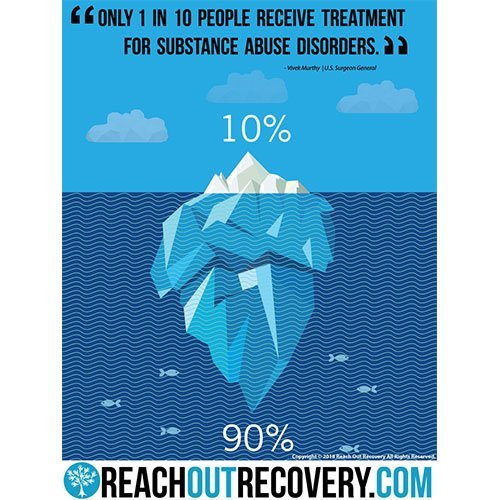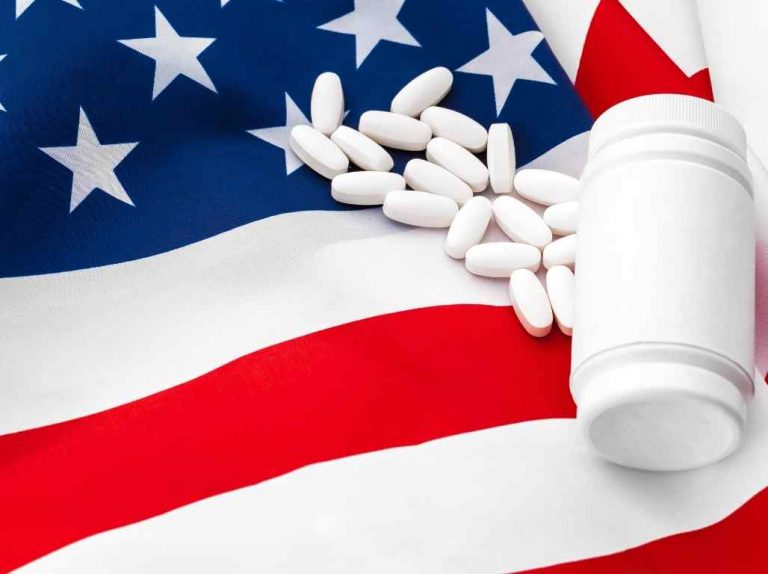The opioid crisis has continued to rage during the Covid Epidemic. What does a Biden/Harris win mean for the future of addiction treatment and the opioid crisis? An addiction professional breaks down the case for policy and addiction treatment change.
Joe Biden knows addiction is a disease and the opioid crisis won’t just go away
President-elect Joe Biden has long recognized that addiction is a disease, not a lifestyle choice, and that we need to change how we talk about and treat substance use disorders. His direct acknowledgement of his son Hunter’s struggle with addiction signified a turning point for millions of Americans; bringing this issue to the forefront on a national stage puts the addiction topic on a level playing field. His plans to allocate federal funds will help improve access to treatment and recovery for opioid and other substance use disorders, something that impacts over 20.3 million Americans who struggle with addiction.
Addiction doesn’t discriminate. It doesn’t care about politics, fame, social status or reputation. It’s an equal opportunity destroyer.
I know, because I lived it. After my first bout with addiction, I entered a treatment program when I was just 19 years old and spent the next 20 years in recovery. Along the way, I built a very successful landscaping business, even employing 15 people. I had a wife, a family and was even building a new house. By all accounts, I was successful. But, through a confluence of circumstances—the economic downturn in 2008, work that kept me from being the husband I should and my wife’s subsequent adultery—I relapsed. I was hurting severely, and even after 20 years of sobriety, I knew exactly what would take away the pain.
I became a substance use disorder therapist
After a year-long downward spiral, I had a moment of clarity and knew I needed help. I once again entered a rehab program, and through that experience found a new calling as a substance use disorder therapist. Ten years later, I have helped hundreds of recovering addicts like myself find and stay on a path to recovery.
Biden’s personal experience with addiction can change the opioid crisis conversation
Through my experience, I’ve seen firsthand the struggles that families facing addiction deal with on a daily basis. I knew where to turn for help when I relapsed because I’d been down this road before. But for many people in my shoes, it’s not an easy transition because of the shame and embarrassment.
By acknowledging his son’s experience in a way that’s uplifting, encouraging and prideful of his son’s recovery, Biden’s words can be a powerful catalyst in eliminating the stigma and shame surrounding addiction. In fact, his plan to fight the opioid crisis will “ensure insurance companies stop discriminating against people with behavioral health conditions and instead provide the coverage for treatment of mental illness and substance use disorders that patients and families need.”
The opioid crisis destroys family members who need help to cope
In 2018, nearly 1 in 5 people used an illicit drug. Meanwhile, more than 23.5 million are living in recovery, which means there are many millions of Americans and their families—of all walks of life—struggling with addiction every day.

Only one in 10 people who need help get the help they need
Unfortunately, 90% of people with a substance use disorder don’t get the help they need because they’re embarrassed or lack access to care. Too many people, including many policy makers, don’t view addiction as a disease, but instead as a moral failure. In many cases, everyone knows about the problem—friends, family members, co-workers—but they won’t talk openly about it.
This shame and silence are in direct contrast to how we handle a loved one with cancer. We never keep quiet. Instead we openly support that individual through their treatment journey with love and encouragement, celebrations of milestones and even host fundraisers and prayer vigils in their honor. Why does someone we love with a substance use disorder not deserve the same respect? This attitude must change if we’re ever going to make progress in helping those we love overcome the disease of addiction.
The continuing opioid crisis means there is an urgent need for policy change
As a clinician, my hope is that Biden’s open dialogue about his son’s experience can also drive much-needed policy change in how we treat and manage addiction.
- First, the Mental Health Parity and Addiction Equity Act aimed to force health insurers to offer mental health and substance use disorder benefits comparable to coverage for medical and surgical care. Unfortunately, a lack of enforcement leaves the law without much “teeth,” including limits on medical necessity, separate deductibles and co-pays for mental versus medical health care, limited services offered within provider networks, and lower reimbursement for those providers. Consequently, patients still can’t get the help they need, and that must change.
- Second, starting October 1, many insurers have cut coverage for virtual or telehealth appointments, which had been covered in full during the peak of the COVID-19 crisis. This is a huge blow for access to mental health and addiction recovery treatment that are extremely well-suited for virtual visits. At a time when continued lockdowns, economic challenges, anxiety and stress are fueling a continued surge in addiction, relapse and mental health crises, this is exactly the opposite response to solving the problem. Instead, we need easier and more affordable access to care for patients at risk.
- Third, the lack of state-to-state practice reciprocity is a huge obstacle. In many cases, mental health professionals are unable to treat patients who are quarantined at home via telehealth because their licensure prohibits them from practicing across state lines. This also prohibits access to care in rural, underserved areas where clinicians are in short supply. With no federal provisions in place that allow clinicians to practice teletherapy over state lines, patients are left falling through the cracks. Federal policy is sorely needed that would address this problem and establish reciprocity standards for state-to-state care, giving patients access to the care they so desperately.
Biden’s presidency can be a pivotal change in addiction treatment
We need a complete paradigm shift in how we handle addiction treatment and mental health care. While we’re beginning to turn a corner, albeit ever so slowly, most people still have no idea how hard it is to find and get started with treatment for substance use disorder until it directly affects their family. In many cases it could be several months’ wait, which means it could be too late.
No one should have to die waiting for treatment. That’s why it’s my sincere hope that bringing the conversation about substance use disorder to the national, presidential stage will be the catalyst for the change we so desperately need to save our loved ones.
By Todd Garlington, Lead Therapist at Greenhouse Treatment Center, an American Addiction Centers facility





















